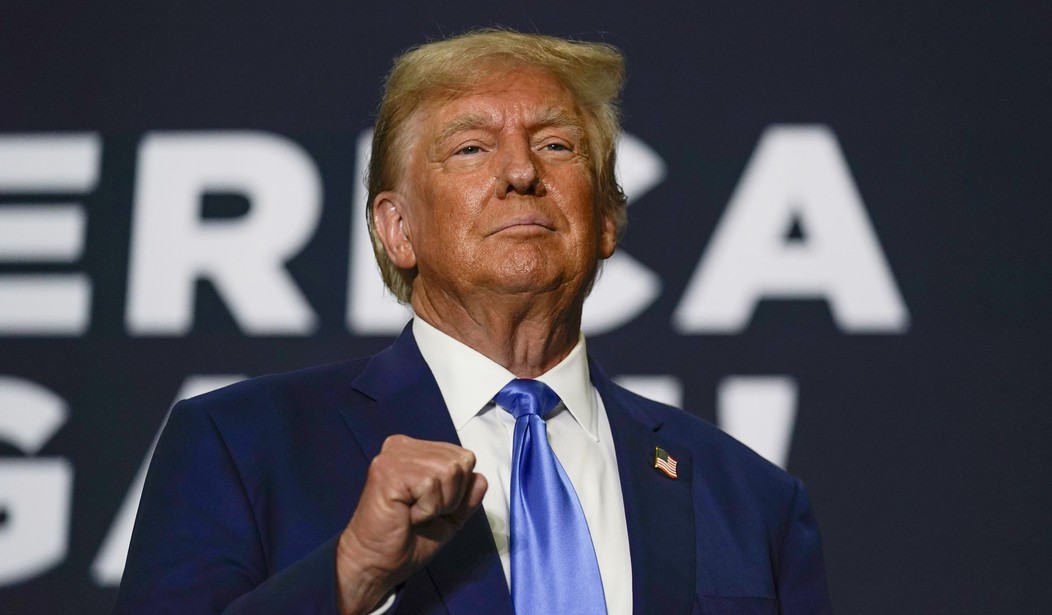Over the weekend, former Vice President Mike Pence withdrew from the 2024 presidential race, suspending his campaign in a speech before the Republican Jewish Coalition. He became the first big name candidate to do so, joining other dropouts like Will Hurd and Francis Suarez, who'd failed to qualify for previous GOP debates. The field is winnowing -- slowly. Upon hearing the news about Pence, businessman Vivek Ramaswamy observed that others in the race should consider follow Pence's lead and head for the exits. Some detractors, citing Ramaswamy's level of support and climbing negatives, suggested he should take his own advice.
Looking ahead, there is a GOP debate in Miami next week, for which just four candidates have qualified thus far: Florida Gov. Ron DeSantis, Amb. Nikki Haley, former New Jersey Gov. Chris Christie and Ramaswamy. Pence is out, obviously, and thus far, North Dakota Gov. Doug Burgum and South Carolina Sen. Tim Scott have not yet hit the participation threshold. Frontrunner Donald Trump is not expected to appear at the event, having skipped the two prior forums without any discernible consequence. In fact, Trump has only further solidified his national primary polling advantage in recent weeks. The counterpoint to that from rival campaigns is that national numbers are less important than what's happening in the early states, which actually matter.
A number of Trump-alternative campaigns, most notably DeSantis', have been pinning their hopes on Iowa. Yesterday morning, the state's most respected pollster released a new survey of the first-in-the-nation GOP caucuses, slated for January 15th (Democrats have demoted Iowa and basically sidelined New Hampshire, at the behest of the Biden campaign). With approximately two-and-a-half months to go until the voting starts, Trump is running away with Iowa:
2024 IOWA GOP CAUCUS: @DMRegister
— InteractivePolls (@IAPolls2022) October 30, 2023
Trump 43% (+1)
DeSantis 16% (-3)
Haley 16 (+10)
Scott 7% (-2)
Christie 4% (-1)
Ramaswamy 4% (=)
Burgum 3% (+1)
Hutchinson 1% (+1)
[Change vs August]@jaselzer (A+) | 404 LV | 10/22-26https://t.co/jjA4T4UNQi pic.twitter.com/QL2QWWFCC2
I've seen a few Trump critics noting that these numbers show almost six-in-ten likely caucus-goers want someone other than the frontrunner, with an even higher percentage telling the pollster that they're considering someone else. That's all true, to an extent, but it really feels like spin. DeSantis has parked much of his campaign in Iowa, dutifully pursuing a 'full Grassley,' as he treks to each of Iowa's 99 counties. This well-respected polling series has tracked his numbers as slightly slumping in the state (the DeSantis camp would highlight Team Trump's renewed paid attacks against the governor as evidence that the former president's operation continues to view DeSantis as a threat). It's also true that DeSantis is tied with Trump in the overall 'actively considering' category. For her part, Nikki Haley clearly has momentum among Republicans seeking a non-Trump option, surging by double digits into a second-place tie with DeSantis. Her campaign has a story to tell there. But the most significant fact is that Trump is ahead by 27 points in this survey. Looking at the Real Clear Politics averages, Trump currently holds leads north of 30 percentage points in Iowa, New Hampshire and South Carolina. He's sitting just shy of an outright majority in all three averages.
Political historians can point to examples of early state polling being somewhat non-predictive at this stage, noting surprising over- and under-performances through the years, relative to expectations. Those examples are worth considering, but so is the reality that the current dynamics are unique. Trump is a former president with a strong following who has been running as an incumbent who barely needs to campaign for the nomination. He's been succeeding. Despite -- and in some ways, because of -- multiple pending indictments against him, Trump has dominated the conversation and attracted a combination of his hardcore base, Republicans who believe he's being abused by the system, and bandwagoners who want to support the winner. No one else in the race has been able to disrupt this trajectory. The trend lines within the 'non-Trump' field have moved around a bit, but no one is eating into Trump's support or lead in any significant way.
Recommended
The consolidation hope remains central to these other campaign's 'path to victory' narratives, which all feels awfully familiar to how Trump opponents talked and acted in 2016. All in all, it's too early to describe Trump as the party's presumptive nominee, but with each passing day, that eventuality becomes likelier. Meanwhile, various figures in Trump's orbit have been accepting plea deals, ahead of the former president's myriad criminal trials. As he fights with judges and contends with gag orders, Trump's former White House Chief of Staff has received immunity in the federal case around the 2020 election and January 6th, and has reportedly told Special Counsel Jack Smith's team that Trump knew the last election had not been stolen. This could very well increase the odds of Trump being convicted of one or more felonies before next year's general election. That would seem...suboptimal for the would-be nominee of a party heading into a high-stakes election against an unpopular and vulnerable incumbent presiding over a disastrous administration. As such, I posed this question:
Are GOP voters absolutely sure this legally-fraught, rolling drama is what they want to go with for a must-win election? pic.twitter.com/tsdVNeTB7u
— Guy Benson (@guypbenson) October 24, 2023
The data indicate that for a large plurality of Republican primary voters, the answer is 'yes.' Can anyone in the GOP field move a lot more of the party's electorate into the 'no' column, and quickly?

























